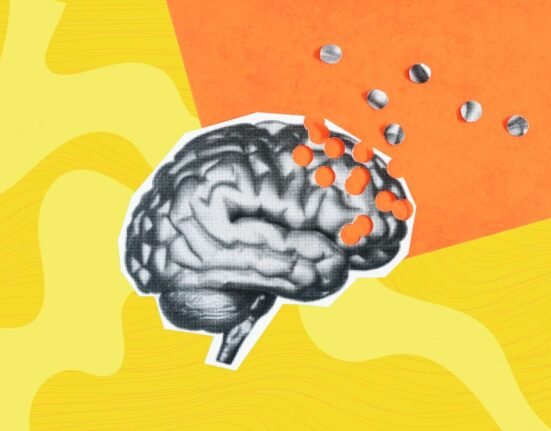Our habits — whether or not we exercise, eat well, or get enough sleep — play a pivotal role in preventing health issues. The right evening habits in particular can positively affect our brain health, which can reduce our risk of conditions such as dementia and Alzheimer’s (a form of dementia). Let’s take a look at what we can do — and avoid — before bed in order to keep our brain in top shape.
How Sleep Promotes Brain Health
The right evening routines help our minds and bodies relax, thereby allowing us to obtain adequate sleep.
According to Dr. Chelsie Rohrscheib, a neuroscientist, sleep expert, and the head of sleep at Wesper, “Consistent, good-quality sleep is essential for maintaining brain health and preventing neurodegeneration. This is because sleep accomplishes many biological functions that do not occur during wakefulness.”
Dr. Kimberly Idoko, a board-certified neurologist and Medical Director at Everwell Neuro, says, “The brain uses sleep to clear metabolic waste products via the glymphatic system. Poor evening routines can disrupt sleep, thereby disrupting brain detoxification and increasing neuroinflammation.” Sleep disruptions can also impair memory consolidation and cell and tissue repair in the brain. Over time, this can contribute to cognitive decline.
5 Dietary and Lifestyle Choices to Avoid After 5 PM
Here are some of the biggest culprits for a restless night.
Poor Sleep Hygiene
According to the National Heart, Lung, and Blood Institute, adults should aim for seven to nine hours of sleep each night. Those who sleep less than seven hours per night may experience more health issues than those who regularly sleep seven hours or more.
Unfortunately, certain evening habits can be detrimental to our sleep. Rohrschieb says these can include keeping an inconsistent sleep schedule, sleeping in a poor environment (too noisy, too hot, too much light), using screens before bed, and taking daily stressors to bed.
Alcohol
Many of us reach for a nightcap, but it’s wise to think twice before pouring that glass. While alcohol may allow us to fall asleep faster, it disrupts the high-quality, restorative sleep our body needs. According to Rohrschieb, this can lead to frequent awakenings and bathroom trips.
A 2024 study in Sleep found that alcohol consumption before bed decreased the amount of REM (rapid eye movement) sleep individuals received. This sleep stage, in which dreaming occurs, plays an important role in memory consolidation and cognition.
Caffeine
Many of us drink caffeinated beverages earlier in the day to improve alertness and focus. However, grabbing a cup of coffee too close to bedtime can wreak havoc on our sleep. “Caffeine blocks a chemical called adenosine that promotes sleepiness,” says Idoko. This can make it hard to fall or stay asleep, leaving us groggy and unrested the next day.
Adenosine plays a significant role in cognitive health. According to a 2023 study in Neuropharmacology, this chemical regulates learning, cognition, the sleep-wake cycle, and neuromodulation, all of which are affected in Alzheimer’s and dementia.
“Avoid caffeine and other stimulants within six hours of your bedtime,” Rohrschieb advises. Individual tolerance levels will vary, so listen to your body to determine when your ideal caffeine cut-off time might be.
Fatty and/or Spicy Foods
Ever eat a burger before bed and instantly regret it? Our favorite indulgences might be satisfying in the moment, but they can mess with our sleep if eaten too close to bedtime.
“Eating foods that are too heavy, fatty, or spicy can lead to indigestion and heartburn,” Rohrshieb says.
The relationship between sleep disturbances and chronic heartburn, also known as gastroesophageal reflux (GERD), is a two-way street. GERD can disrupt our sleep, while this sleep deprivation can then exacerbate GERD, resulting in a vicious cycle.
High-Glycemic Foods
A food’s glycemic index (GI) predicts how quickly its carbohydrates will be digested and absorbed in the bloodstream. High-GI foods (white bread, white rice, sugary beverages) are digested more quickly and therefore lead to rapid blood sugar spikes. Low-GI foods (leafy greens, whole grains, legumes) are digested more slowly, leading to a less pronounced effect on blood sugar.
High-GI foods, Rohrschieb says, “cause a fast spike in blood sugar, followed by a crash, [which] can lead to awakenings due to mid-sleep hypoglycemia.”
Positive Lifestyle Habits for Brain Health
Supporting our brain health before bedtime, according to Idoko, starts with adopting “an evening wind-down routine that is calming to the nervous system.” This allows us to let go of our daily worries and stressors so we can relax and ease into a restful slumber. Idoko recommends dimming lights, engaging in some light stretching, meditating or practicing deep breathing, and/or reading a physical book.
Instead of alcohol or caffeine, Rohrschieb suggests mixing up a mocktail or enjoying herbal tea. These beverages can still satisfy that need for a bedtime drink without compromising our sleep architecture.
The foods we eat matter, too. High-fiber, high-protein foods can keep our blood sugar stable throughout the night, Rohrschieb says, which can reduce hypoglycemia risk. It’s also important to keep it light and avoid overeating. Furthermore, the foods we eat throughout the day play a role in our overall health. A balanced diet can help stave off a variety of health problems, including Alzheimer’s and dementia.
Additionally, Rohrschieb recommends incorporating the following into our day:
- Daily exercise: Not only does regular physical activity benefit our body, it also has profound effects on our brain. Physically active adults are less likely to develop cognitive decline compared to those who are physically inactive. Aim for about 150 minutes of moderate-intensity exercise each week. Do be mindful of avoiding exercise too close to bedtime, though, as this can also make it difficult to fall or stay asleep.
- Mental tasks: Keeping the brain active and challenged can potentially prevent cognitive impairment. Consider completing crossword puzzles, reading, playing games, or engaging in a creative hobby (crocheting, painting, writing).
- Regular socializing: Social isolation can increase the risk of developing dementia, according to the Alzheimer’s Society. It’s important to maintain supportive connections with loved ones and our communities. Call a friend, attend a yoga class, or join a local group for your favorite hobby.
Key Takeaways
- Get enough sleep and maintain a healthy lifestyle overall to prevent Alzheimer’s and dementia.
- Avoid coffee and other stimulants within six hours of your bedtime.
- Our bedtime habits can set us up for either a restful or a restless night of sleep, which can then impact our brain health.









:max_bytes(150000):strip_icc()/Screenshot2024-10-04at11.05.45AM-b84f1249467b4582905fed8603092d00.png)





Leave feedback about this